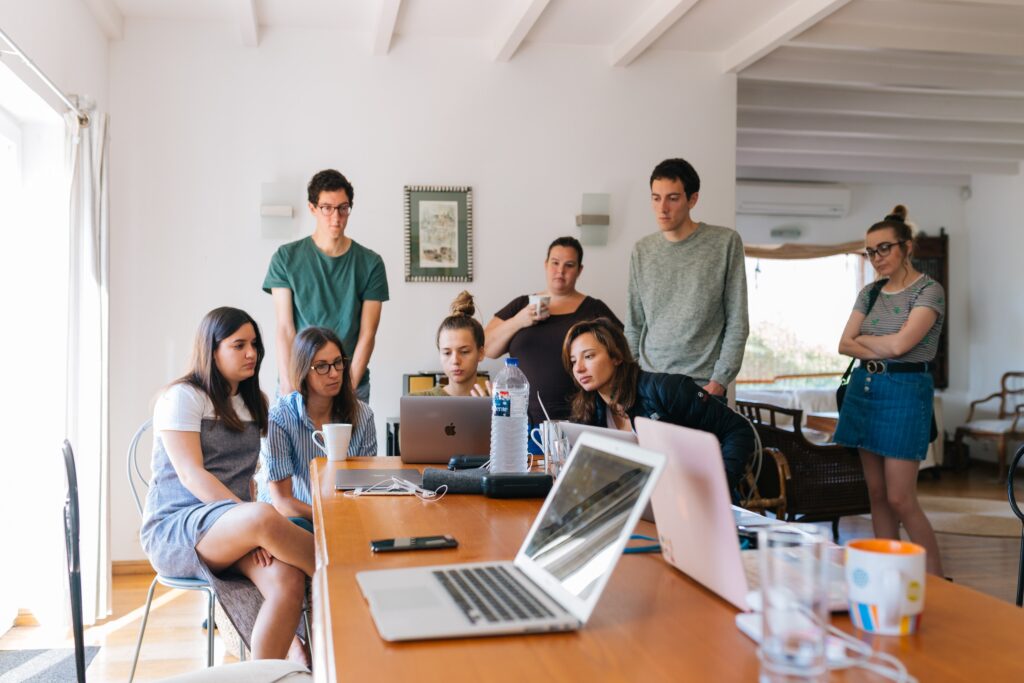This case is about the consulting industry and learning in and from projects. Fredrich Funkabator Consulting AS (FF Consulting) is a relatively large advisory firm whose purpose is to facilitate real improvements in the handling of current and future challenges for the organizations they assist.

Often, such purpose statements can be more or less clichés, but for FF Consulting, this is genuine, and they actively engage with clients based on this premise, even if it means that they sometimes do not gain any financial profit themselves. The company has approximately 110 employees, with the majority being consultants and advisors who execute processes for clients.
They have now been in contact with a potentially significant and important client, Richandgood ASA (RGA), and both parties see potential for a long and close collaboration ahead. Richandgood ASA (RGA) has substantial financial resources and operates within an industry that is constantly changing, where competent employees are at the core of the business.
Therefore, they are concerned with both innovation and learning, as well as efficient processes. When the agreement for a committed collaboration is reached, it will be a central premise and intention that representatives from both FF Consulting and RGA will work together in teams.
You are a newly hired employee at FF Consulting with a fresh bachelor’s degree in project management and have been asked to prepare a presentation for FF Consulting’s internal use before they meet with RGA. Throughout your studies, you have learned that when external consulting firms are involved in projects on behalf of clients, there is often limited attention and interest in facilitating learning. This includes the learning that takes place within project teams and the process of transferring content-based learning from the project to the client’s organization.
Being newly hired and not yet familiar with the company’s workings, you can provide an independent perspective on this matter. As a result, you are asked to be critical yet constructive. You should have a PowerPoint presentation ready, along with an underlying script.
Here, you are to present, argue, and justify the following:
What is learning in projects, and how does it relate to innovation? You should also include the phenomena of tacit and explicit knowledge as potential challenges in innovation projects.
- What is learning in projects?
• Learning in projects refers to the knowledge, skills, and experience acquired through the planning, execution, and evaluation of projects.
• It involves identifying and understanding new ideas, methods, processes, and approaches that can enhance the performance and outcomes of future projects. - The relationship between learning and innovation
• Innovation is about creating and implementing new and improved solutions, products, or services. • Learning in projects is a key process that supports innovation by identifying opportunities, experimenting with new ideas, and adapting to changes.
• Through learning, organizations can achieve continuous improvement and quickly adapt to changing needs and challenges. - Tacit and explicit knowledge in innovation projects
• Tacit knowledge is the implicit and experience-based knowledge that is difficult to articulate or communicate to others.
• Explicit knowledge is the knowledge that is clearly formulated and can be expressed clearly and precisely.
• The challenge in innovation projects is to capture, document, and share the tacit knowledge that exists among project team members.
• Making tacit knowledge more explicit through experience-sharing and knowledge exchange is essential to ensure valuable knowledge is not lost when projects are completed.
Agile projects emphasize loops (iterations) with testing, experimentation, and learning. This aligns well with RGA’s mindset for the projects they plan to initiate. What would be particularly important to consider regarding experience sharing and learning if an agile implementation strategy is chosen? They want you to specifically focus on how they can professionalize their project-based learning and provide general input on how this can be achieved.
Agile Projects and Experience Sharing
- Emphasis on iterations and learning in agile projects
• Agile projects are based on frequent iterations, where solutions are tested and adjusted along the way.
• This provides an opportunity for continuous learning and improvement through feedback and adaptations based on real-world usage and experiences. - Professionalizing project-based learning in agile projects
• Establish a culture that values learning and knowledge sharing as a central part of project work.
• Implement structures to systematically capture and document learning, both successes and failures, through retrospectives and experience reports.
• Utilize digital tools and platforms to share knowledge and experiences across projects and teams. - General input on professionalizing project-based learning
• Establish a learning network or an internal knowledge base where project teams can share and search for relevant knowledge and experiences.
• Organize regular workshops, seminars, or webinars where project teams can present and share their experiences with the rest of the organization.
• Encourage mentorship programs and experience exchanges between experienced and less experienced project members.
The work primarily takes place in teams. How can learning processes be integrated into team collaboration and the projects to be carried out? Keep in mind that the premise is for teams to learn simultaneously while ensuring that the learning can be transferred to both FF Consulting and RGA.
Learning processes as an integrated part of team collaboration and projects
- Establishing a learning culture and psychological safety
• Create an open and trusting atmosphere where team members are encouraged to share knowledge, ideas, and reflections without fear of negative consequences.
• Facilitate learning through mistakes and experimentation, where errors are seen as opportunities for learning. - Use of reflection and evaluation
• Incorporate reflection and evaluation sessions as a regular part of the project process.
• Review and analyze the project’s results, processes, and challenges to identify learning points and areas for improvement. - Knowledge transfer to both FF Consulting and RGA
• Develop systems and structures to capture, document, and share knowledge and learning across projects and organizations.
• Establish channels and platforms for efficient communication and sharing of learning between FF Consulting and RGA.
• Encourage mutual knowledge exchange and collaboration among team members from both organizations.
Conclusion: By emphasizing learning in projects, particularly through agile approaches and an integrated learning culture, FF Consulting and RGA can achieve continuous improvement, innovation, and value creation. By establishing structures and systems for experience sharing, professionalizing project-based learning, and promoting knowledge transfer, both organizations can benefit from the collaboration and ensure long-term success.
This case is taken from the book “Verdiskapende Prosjektledelse” – 2022, 2. Edition, by Torgeir Skyttermoen og Anne Live Vaagaasar.




